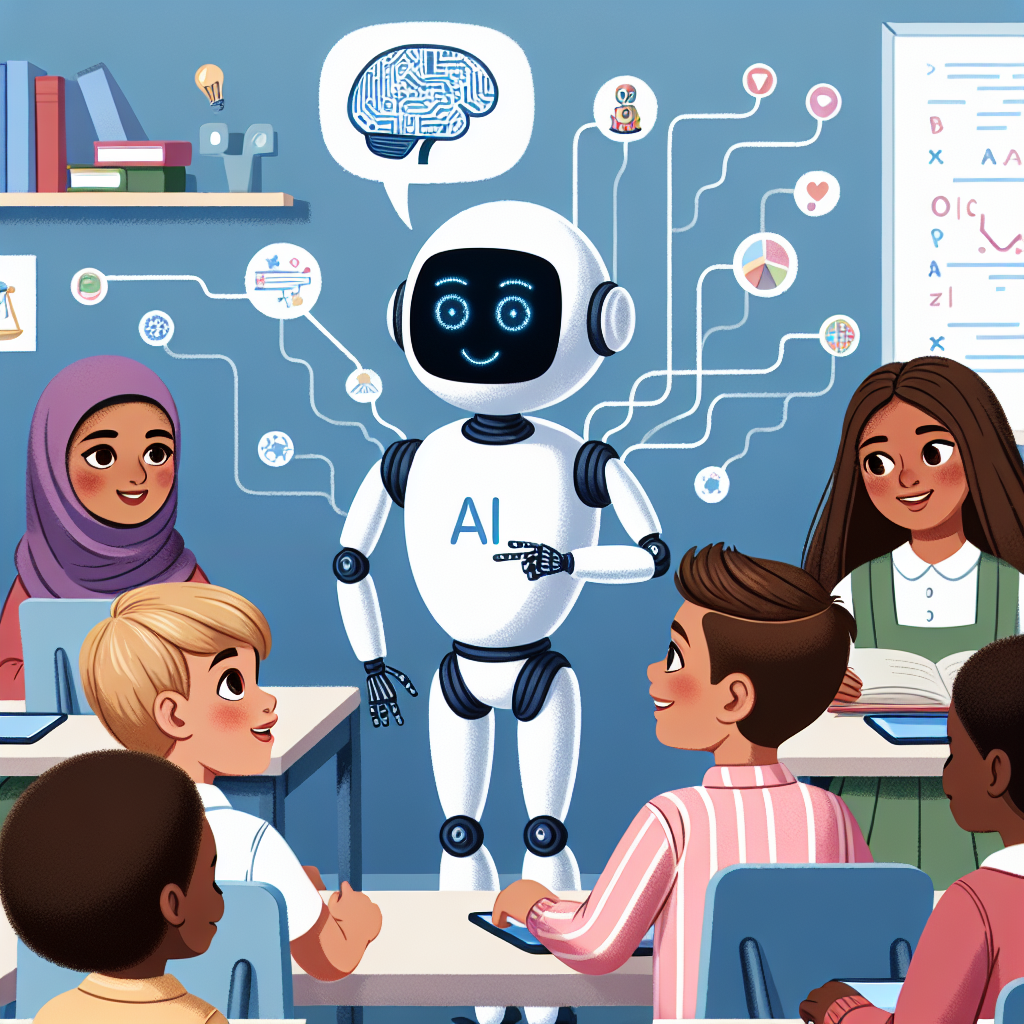Artificial intelligence (AI) has rapidly become a powerful tool in education, transforming the way students learn and teachers teach. One of the key areas where AI is making a significant impact is in student engagement. Keeping students interested and motivated is essential for their academic success, and AI is helping educators achieve this goal in innovative ways.
AI-powered tools can personalize learning experiences for students, making education more engaging and relevant to their individual needs and interests. By analyzing data on student performance and behavior, AI can provide insights into how students learn best and tailor instruction accordingly. This personalized approach helps to keep students engaged and motivated, leading to improved learning outcomes.
One of the ways AI is enhancing student engagement is through adaptive learning platforms. These platforms use AI algorithms to assess students’ knowledge and skills, and then provide personalized learning pathways to help them progress at their own pace. This adaptive approach ensures that students are challenged appropriately and are not overwhelmed or bored by material that is too easy or too difficult for them. By continuously adapting to students’ needs, these platforms keep students engaged and motivated to learn.
AI-powered virtual tutors are another innovative tool that is helping to enhance student engagement. These virtual tutors use natural language processing and machine learning algorithms to interact with students in a conversational manner, providing personalized support and guidance. Virtual tutors can answer students’ questions, provide explanations, and offer feedback on their work, helping to keep students engaged and motivated to learn.
AI is also being used to create interactive learning experiences that are engaging and immersive for students. Virtual reality and augmented reality technologies, powered by AI algorithms, can create realistic simulations and scenarios that allow students to explore and interact with concepts in a hands-on way. By making learning more interactive and experiential, these technologies help to keep students engaged and motivated to learn.
In addition to personalized learning pathways, virtual tutors, and interactive experiences, AI is also being used to gamify learning. Gamification involves incorporating game elements, such as points, levels, and rewards, into educational activities to make them more engaging and enjoyable for students. AI algorithms can analyze students’ progress and performance in games, providing real-time feedback and adaptive challenges to keep them motivated and engaged.
Overall, AI is revolutionizing student engagement by providing personalized learning experiences, virtual tutors, interactive experiences, and gamified activities that keep students interested and motivated to learn. By harnessing the power of AI, educators can create dynamic and engaging learning environments that cater to the diverse needs and interests of students, ultimately leading to improved academic outcomes.
FAQs:
Q: How does AI personalize learning experiences for students?
A: AI analyzes data on student performance and behavior to provide insights into how students learn best and tailor instruction accordingly. This personalized approach helps to keep students engaged and motivated, leading to improved learning outcomes.
Q: What are adaptive learning platforms?
A: Adaptive learning platforms use AI algorithms to assess students’ knowledge and skills, and then provide personalized learning pathways to help them progress at their own pace. This adaptive approach ensures that students are challenged appropriately and are not overwhelmed or bored by material that is too easy or too difficult for them.
Q: How do virtual tutors enhance student engagement?
A: Virtual tutors use natural language processing and machine learning algorithms to interact with students in a conversational manner, providing personalized support and guidance. Virtual tutors can answer students’ questions, provide explanations, and offer feedback on their work, helping to keep students engaged and motivated to learn.
Q: What are interactive learning experiences powered by AI?
A: Virtual reality and augmented reality technologies, powered by AI algorithms, create realistic simulations and scenarios that allow students to explore and interact with concepts in a hands-on way. By making learning more interactive and experiential, these technologies help to keep students engaged and motivated to learn.
Q: How does AI gamify learning?
A: AI is used to incorporate game elements, such as points, levels, and rewards, into educational activities to make them more engaging and enjoyable for students. AI algorithms analyze students’ progress and performance in games, providing real-time feedback and adaptive challenges to keep them motivated and engaged.

